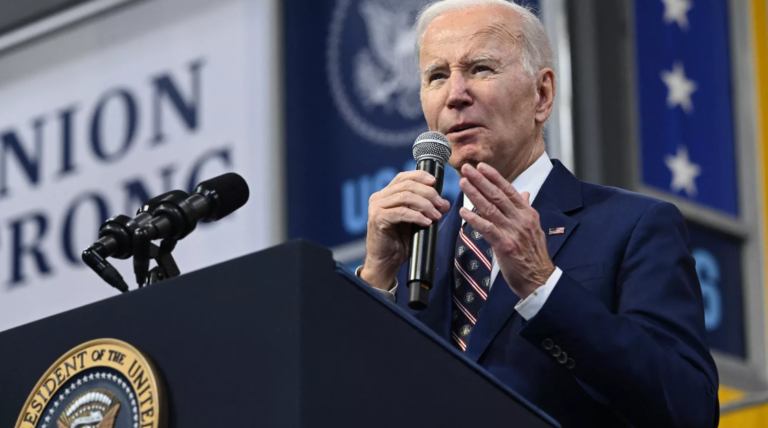[ad_1]
President Biden recently unveiled his budget proposal for the upcoming fiscal year, sparking heated debate across the nation. The budget includes a wide range of measures aimed at addressing key issues such as infrastructure, climate change, healthcare, and education. However, critics argue that the proposal is too ambitious and would lead to excessive government spending and a significant increase in the national debt.
One of the key components of President Biden’s budget proposal is a $2 trillion investment in infrastructure and climate change initiatives. The plan calls for significant investments in transportation, clean energy, and broadband access, as well as funding for water infrastructure and climate resilience projects. Proponents of the plan argue that these investments are necessary to address the pressing challenges of deteriorating infrastructure and climate change, while also creating millions of jobs and stimulating economic growth.
On the other hand, critics of the proposal argue that the price tag is simply too high. They raise concerns about the impact of such a large investment on the national debt and the potential for inflation. They also question the effectiveness of the proposed measures in addressing the stated issues, arguing that the government should focus on reducing spending and eliminating waste rather than increasing expenditures.
Another contentious aspect of President Biden’s budget proposal is his plan to expand healthcare and education programs. The budget includes funding for initiatives such as expanding access to healthcare, lowering prescription drug prices, and providing tuition-free community college. Supporters of the plan argue that these measures are essential for improving the well-being and economic opportunities of millions of Americans. However, opponents argue that these programs are too costly and would result in an unsustainable expansion of government intervention in these sectors.
Overall, President Biden’s budget proposal has sparked a fierce debate across the nation. Supporters praise the ambitious measures aimed at addressing pressing issues such as infrastructure, climate change, healthcare, and education. They argue that these investments are necessary for ensuring the long-term prosperity and well-being of the country. On the other hand, critics raise concerns about the cost and potential impact on the national debt, arguing that the government should prioritize fiscal responsibility and reduce spending.
As Congress begins to debate and negotiate over the budget proposal in the coming weeks, it is clear that this issue will continue to be a point of contention. Ultimately, the outcome of these debates will have far-reaching implications for the future direction of the country and the well-being of its citizens.
[ad_2]

